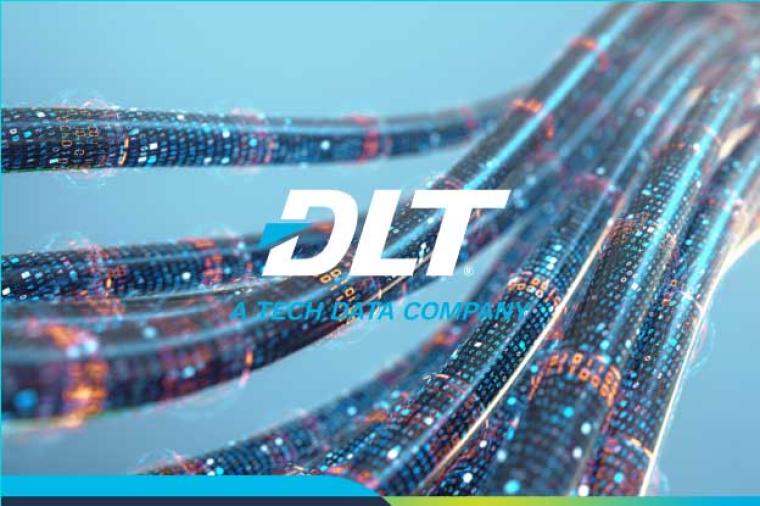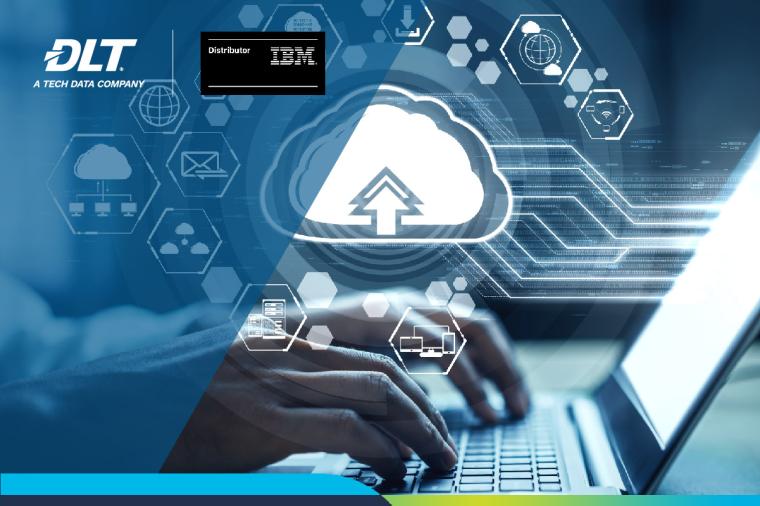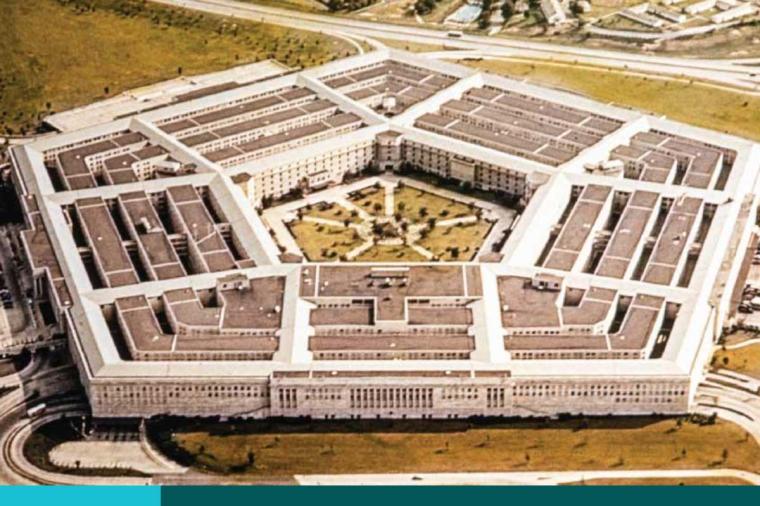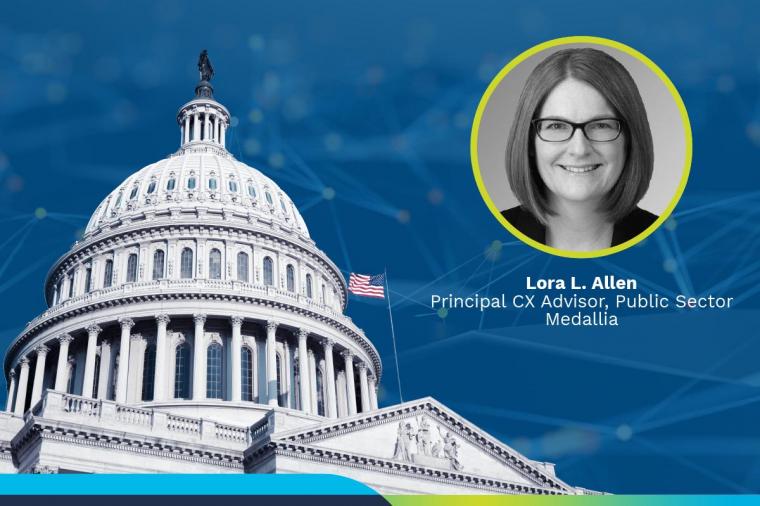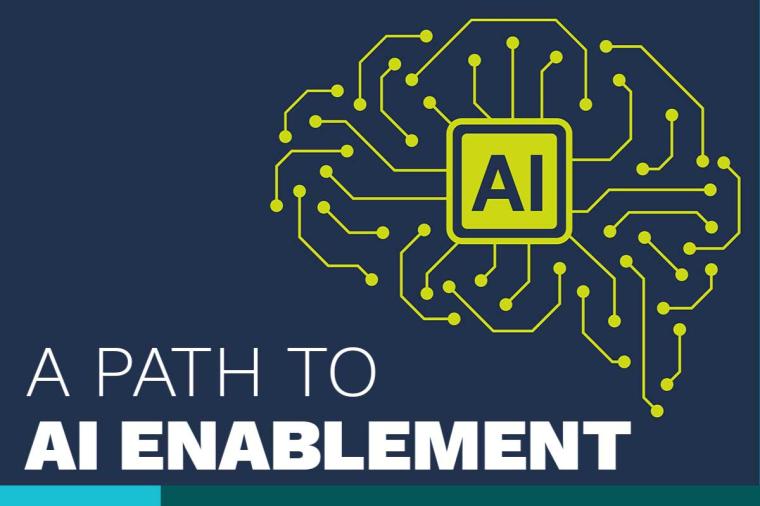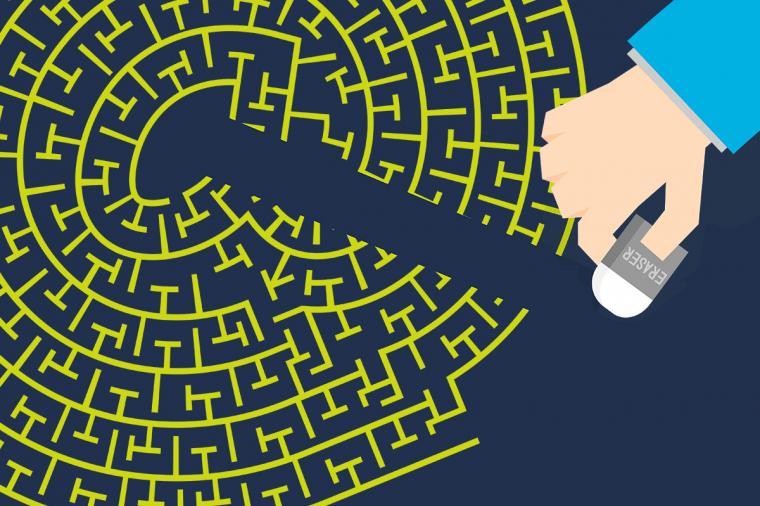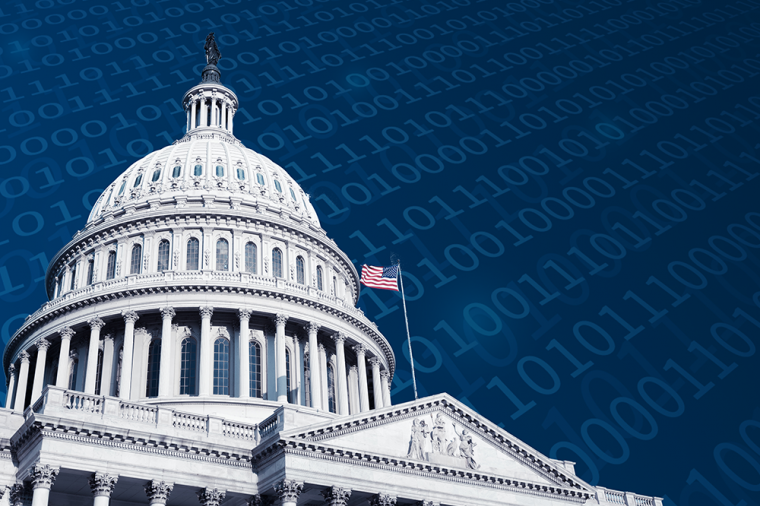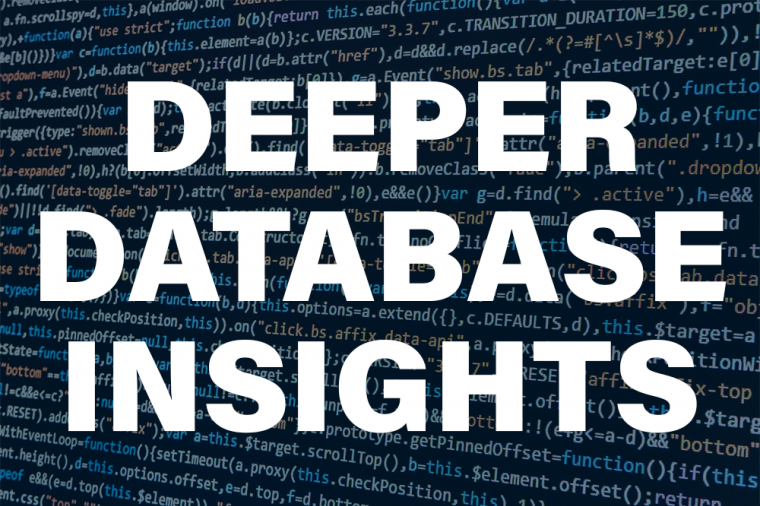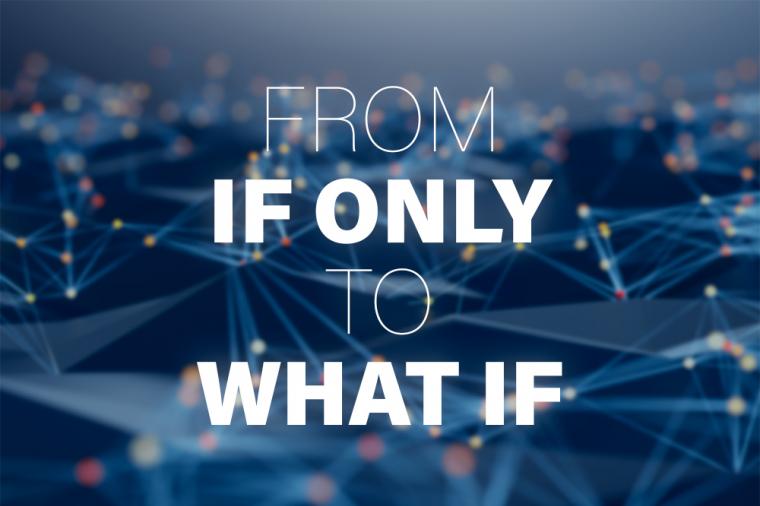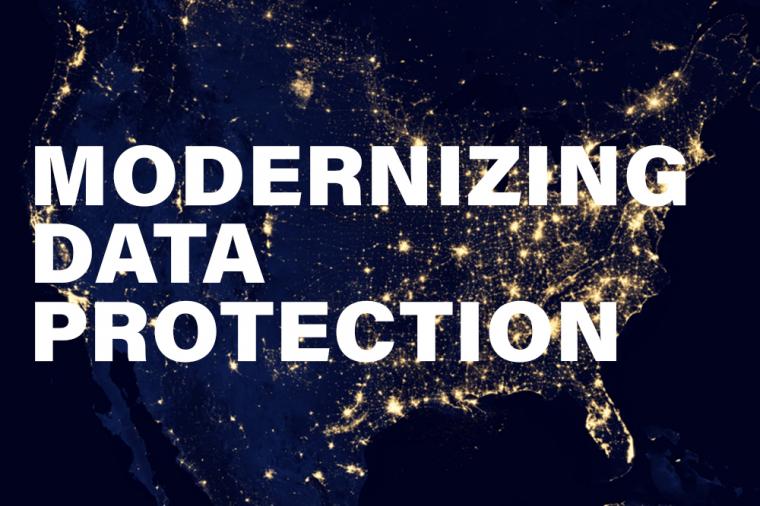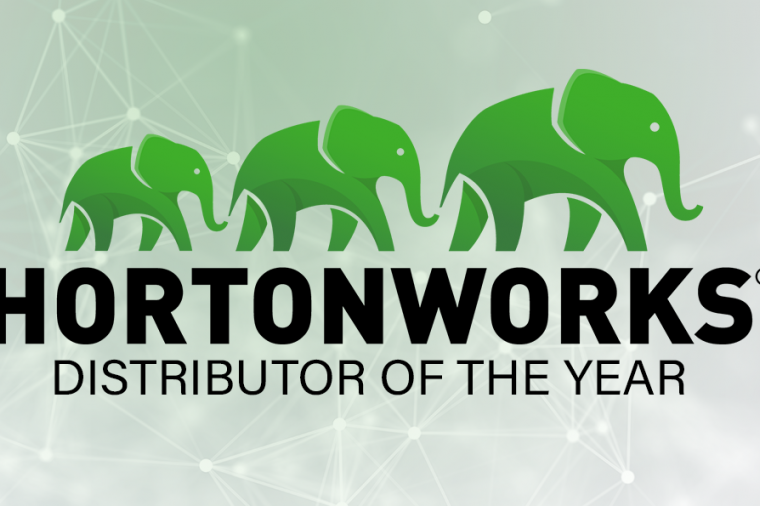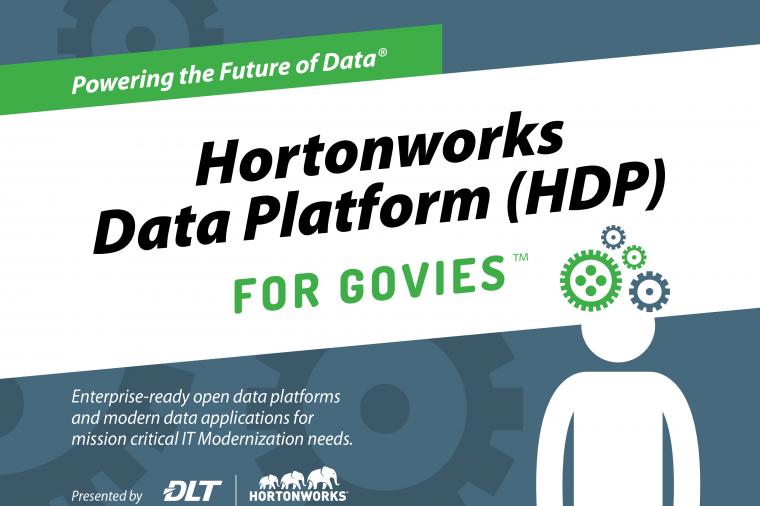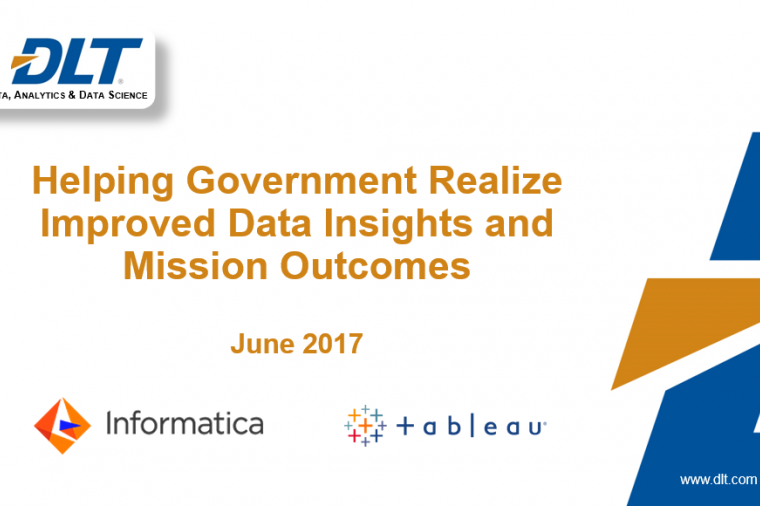Exclusive Interview: Data Coalition CEO, Nick Hart
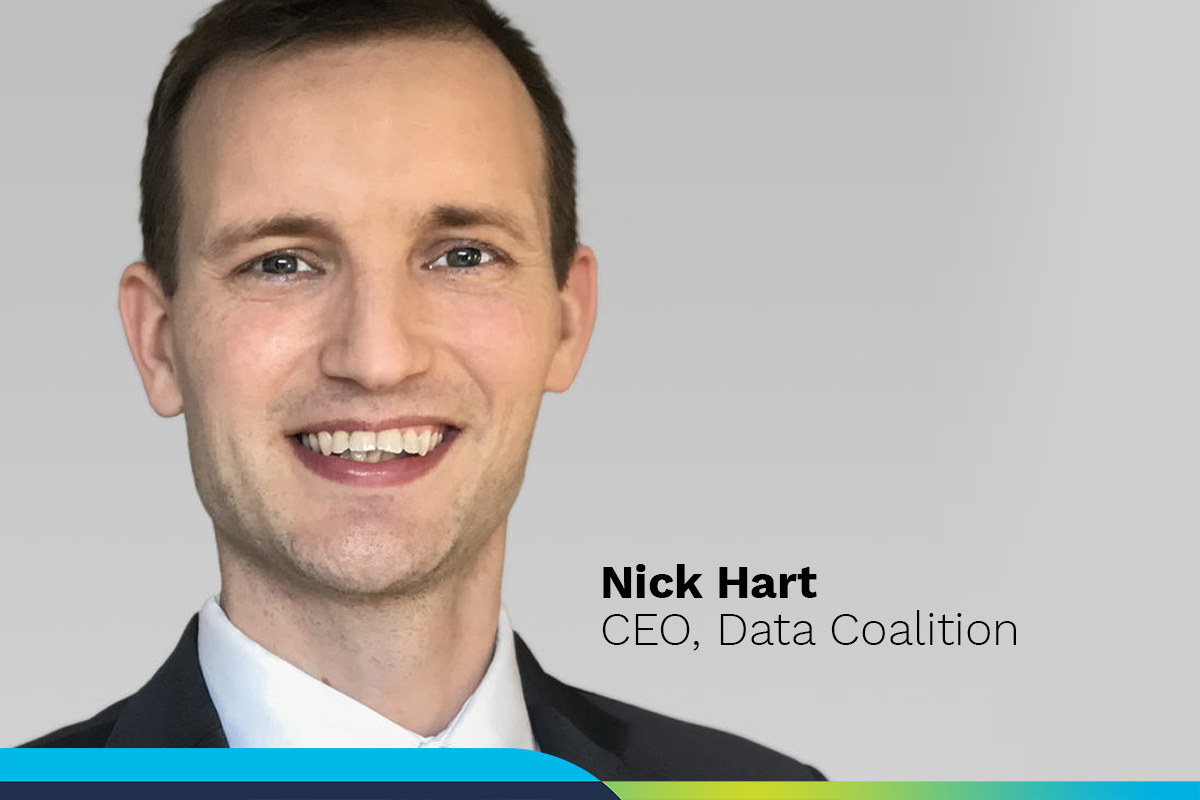
Exclusive Interview with DLT Chief Data Scientist, Sherry Bennett and Data Coalition CEO, Nick Hart
Sherry: Welcome Nick Hart, CEO of the Data Coalition. Thank you for participating in our interview today to help launch DLT’s inaugural Data Innovations newsletter. Nick, please tell me a little bit about your professional career in government and how you became CEO of the Data Coalition.
Nick: I spent most of my professional career working inside the White House and the Office of Management and Budget (OMB) on a variety of data and evidence issues. In 2016 and 2017, I was one of the senior staffers for the Commission on Evidence Based Policymaking.
Following the Commission's Final Report to Congress and the President, I moved outside of government to the Bipartisan Policy Center (BPC) to become an advocate and a resource in designing the Evidence Act, as well as all the things that need to happen to get thoughtful, bipartisan legislation through Congress. And so much of my role at BPC at the time was really focused on education and technical assistance. So not that dissimilar from what I do today. But we worked closely with Paul Ryan's staff, and Senator Murray’s staff, as well as a number of the committees to do everything from 1:1 meetings about particular issues around privacy or data sharing, program evaluation, even as well as developing some other resources that were ultimately used, and understanding the nature of the problems and the barriers that existed for government to share and link data today. At BPC it was helpful to be in a position where folks could call on us as a resource to specifically respond, including very quickly, when there was an informational need for anything related to not just the Evidence Act, but even data priorities more broadly. I would say our work was a success because we now have the Evidence Act enacted into law. So we were doing something right!
Sherry: Tell us a little bit about the data coalition, how was it founded and why is it's work so relevant today?
Nick: The Data Coalition is an effort to align government, business and academic interests and data to really promote better access to high quality information. So across all of the members of the data coalition, there's a common thread, a belief that government data is valuable, and useful, if it can be accessed. That's not possible. In all contexts. Today, there's a lot of data that's held behind firewalls or restrictions, it's just not produced in a way that's machine readable, or we're open or even minimally accessible when extra restrictions might be needed. So our work really prioritizes government having the capacity to organize its own data, but also aligning the interests of those who are on the outset of government to help prioritize and effectively implement improvements to the national data infrastructure. That's an important role because no one else is really doing it.
The data coalition, we focus on the data, there are a lot of people out there that focus on IT systems, and physical infrastructure. We're here to talk about the quality of the information that's on the IT systems and how that can actually be used to generate knowledge and insights. That's a niche role that we have. And it's a really unique and important one. Not just because others are, aren't really playing that play playing that role in the same way that we do. But the expertise, when it comes to data, really does sit inside government, as well as with a lot of people on the outside of government. And so a lot of our energy and attention is trying to specifically bring that expertise regardless of where it sits into common discussions about how to solve problems. Sometimes the work that we do culminates in legislation. So back in 2014, the digital accountability Transparency Act, the data act was a major initiative of our work. And then more recently, things like the evidence Act and the open government data act, those laws are all about good government good data.
Our work really prioritizes government having the capacity to organize its own data, but also aligning the interests of those who are on the outset of government to help prioritize and effectively implement improvements to the national data infrastructure.
So the members of the data coalition are fairly eclectic in their interest in data. We have management consultancies, data analytics, firms, software vendors, and nonprofits that are conducting surveys and our users of data. So that diversity of thought is essential for us ensuring that when we're providing assistance on policy design, through legislation or regulation, that we're getting it right, and that we're actually making real meaningful improvements, rather than trying to type the next sentence, but it was going to be rather than get making people money. Technically, we do that too.
I always like to say that data is like the plumbing in your house, it's so essential to your house working, and everyone being happy and successful at home in modern society. When the plumbing is clogged or backs up, you have a lot of problems! In many ways data are the same, they are so foundational to the success of the entire unit.
Sherry: That’s a great segue into a discussion about the Evidence Act. The Evidence Act was passed in 2019 in an effort to get agencies focused on their so-called data plumbing! Some proponents of the Evidence Act have expressed frustration over the fact that Agencies have not made more progress in the management and use of data. Given where we are today, what do you think have been biggest successes? And secondly, why are some agencies struggling to make greater strides in their journeys to leverage data as a strategic asset?
Nick: The evidence Act requires a lot of government, it requires a lot of leaders inside agencies - who in many cases have worked on data and data analysis for years - but it requires a new way of thinking and a new way of organizing.
The Evidence Act…requires a new way of thinking and a new way of organizing.
And so I think the hallmark of the legislation itself is really that it organizes around people and process. And then you stack on top of that certain obligations, including related to privacy, protection, and assessing risks around things like identification, for example - these are some new constructs for parts of government, they weren't previously priorities, they weren't things that were done in a comprehensive way in the past.
So what does that mean for implementation, when you have a lot of expectations and a lot of requirements and a lot of new things all happening at the same time - implementation can run into challenges, so one of the biggest obstacles or barriers that we've seen is simply the education and awareness that agencies need to know how to make all these pieces fit together. How do you establish a new Chief Data Office, align them with evaluation needs, align them with the work that is happening in the statistical system, while at the same time producing more open data assets, publishing data inventories, and being mindful and thoughtful about privacy protections? That's a lot of work! And the guidance that is needed for all those things to fit together hasn't been slow. So your question that people have been saying this has been a slow process, I've been saying that it's been too slow as well, because we're really decades behind on some of these things. And so government is right now catching up, rather than leading. So just because we have the law that was enacted in 2019. Doesn't mean that immediately in 2019, or 2020, everything is where it should be, many of these agency environments are still operating at a level that is equivalent to a decade ago.
...we're really decades behind…many of these agency environments are still operating at a level that is equivalent to a decade ago
And so there's just so much room for progress. And the people, the leaders to get this done are what matters so much. Because if you have the people that are motivated to organize and resource effectively, and appropriately, the activities, then the whole operation can move forward and succeed. But really what we're talking about is still more complicated, because this is this is about culture change across the federal government. And it's not just one agency, it's not about one type of data. It's about all types of data and every single agency in government.
…this is about culture change across the federal government. And it's not just one agency, it's not about one type of data. It's about all types of data and every single agency in government.
So the enormity of the task is really why people are so important, but also, the leadership from the White House. And the guidance that comes out of the Office of Management and Budget is so central to the success of the entire endeavor. So that lack of guidance - not to say that OMB is always in the driver's seat for this stuff - when it comes to coordinated guidance, they have been slow to render guidance. The Open Government Data Act, for example, has yet to have coherent guidance issued by OMB about what agencies do for developing data inventories of open data assets. But that's so important to the future success of the law.
You asked about big successes in your question. And I guess I don't want to downplay the fact that there have been some tremendous successes already to date, in implementing this law, the advent of a federal data strategy over the last several years to be in organizing constructs that give us actionable steps for implementation around establishing a chief data officer council so that they can build a community of practice to coordinate with each other, establishing the starting point for better researcher access to data assets, establishing the framework for producing more open data that's required by the law, these are all things that that are really important for everything that follows. And we always knew they had to start somewhere and implementing this in government, but at the same time we are behind, we have a long way to go. The only way we'll be able to speed up the endeavor at this point is to really prioritize resources, ensuring that the people with the right skills and expertise are part of the process, and that there's meaningful leadership coming out of the White House and frankly, every single agency.
Sherry: What are some major lessons learned that newly appointed CDOs who are just coming into their role to help inform they start their journey within their respective agency?
Nick: There are three things immediately I can think of. Number one, we know every agency is different. There are not a one size fits all solution that can magically be applied and make the capacity and the infrastructure functional and effective across government. And every agency must figure out how to do this. That is the most relevant for them. That does not mean they have to do it alone. And that is one of the great benefits of the CDO council where they have already recognized that the challenges for the large agencies and the really small agencies are different. And there are different organizing groups that they have established around the size of your agency just knowing that that is one of the basic criteria that distinguish what your function is going to look like. Yeah. The second thing we know is that establishing a clear set of use cases and value proposition is so essential to building out an effective Office of the CDO (OCDO). Many of our large OCDO’s in government today did not start large, they started with one person who was entrepreneurial, and could make the case for why this mattered in the context of a particular agency. And using that, as a leverage point could expand into other areas and work holistically with the entire agency. This is how Ted Kaouk at the US Department of Agriculture started his operation, it started as a very small, one person unit. And because senior managers across the agency could see the value of using data and the way that he was describing, they were able to adopt and expand. The US Department of Education similarly started in a smaller structure. There are some agencies that still have one person shops and are working on this actively today. But they're really all building up to this. Why does it matter to organize data in the way that we're talking about? Why does it matter whether we're using it, and the more we can build those examples? So regardless of what program area you're working in, you can see how there's a connection between the data and mission attainment and mission fulfillment. And I think if CDOs can really achieve that, then this will all be easier in the long run. So I think there's two very clear lessons learned that we've already seen, which is every agency looks a little bit different, and how they devise an appropriate solution. And the value proposition really matters.
Sherry: One of the recommendations that you are working to advocate is the creation of a national data service. What exactly is a national data service? And why should that be a priority right now?
Nick: There are a lot of different ways to think about what a data service could be. Back in 2017, the evidence commission recommended a particular type of data service, they called it the national security data service. And it was a place that was envisioned as a linkage hub for confidential, secure records maintained by government. Also as a resource to bring in external data for linkage, when we might have a research purpose. And when I say research purpose here, I am thinking about something like group analytics. For example, an average among several people, or households or entities. And this is a distinctly different way than thinking about data linkage, when we might want to do some of this for improper payments, fraud detection, eligibility determinations across government. And certainly, there are lots of reasons to do data linkage there as well. The current discussions focus a lot on that statistical research purpose. And there is an advisory committee that was created by the evidence act to explore specifically that purpose. Here's why it matters. Today, government can't really do that, for basic research, social science research, understanding the nature of programs and whether they're achieving their goals. We know that often the data that are needed to conduct those kinds of evaluations and studies are collected across multiple parts of government. And if the authority doesn't exist to actually link that information together, we're duplicating data collections, which has some potential for privacy harm, but also is incredibly expensive and burdensome.
And if the authority doesn't exist to actually link that information together, we're duplicating data collections, which has some potential for privacy harm, but also is incredibly expensive and burdensome.
And we're not maximizing the value of the data that we already have, including when it's already allowed by law. So having a at a practical level, having a data service would allow us to produce more rapid knowledge about some of the core questions that policymakers and decision makers, even in the private sector are trying to grapple with when government already has that information. It is so siloed and those silos are one of the reasons that this is so important, the Federal Statistical system is incredibly decentralized, in the sense that they each kind of operate on their own.
Each federal agency, the Census Bureau, the Bureau of Economic Analysis. So a data service could also just frankly, help our national statistics be higher quality, more robust, more reliable or valid. And that has huge implications for markets that are using things like gross domestic product and unemployment rates. So the benefits here are really extensive. And again, this is trying to fill in a gap of what exists today.
A data service could also just frankly, help our national statistics be higher quality, more robust, more reliable or valid.
Now, there has been some discussion of having other kinds of data services and that's certainly relevant because we know if we're going to do benefit modernization, for example, and the federal government in partnership with states, we need better capabilities to link together information That might be collected across an array of programs. And those, those conversations, of course, are going to be happening in parallel.
The federal government in partnership with states, we need better capabilities to link together information That might be collected across an array of programs.
Sherry: One last question since we have a few minutes. One of the things that that you've suggested and I completely agree, is that many data initiatives inside agencies are really to innovation, right? Data is key to digital transformation and driving innovation within the public sector. Leveraging “AI” is also a key priority – as mandated by the National AI Initiative Act (NAIIA) recently passed. It's certainly associated with innovations, novel workloads, being able to work faster, have staff, be able to focus, be able to do more quality work, and then focus their attentions on other important items that they may be tasked with. What do you see as a CDOs role in helping to foster or create the ability to actually enable an agency to leverage this type of innovation.
Nick: Well, I mean, we're really expecting the CDO to work magic and creating the foundation for AI, right. So an AI deployment cannot be successful if the data aren't organized in a sufficient quality for use, right? So part of the role of the CDO is to govern data. And I mean, it sounds like a kind of boring task. But it's so essential to have some basic data standards and quality checks and metrics, and even knowledge about what data are there, then the ability to share that information across silos or organizational units. So any number of analytical functions can happen.
An AI deployment cannot be successful if the data aren't organized in a sufficient quality for use.
So if you envision that AI is one of a number of types of analysis that can happen, which is a true statement. The CDO has a really instrumental role in identifying what the capabilities currently are, but also building up so that other kinds of innovation can be deployed in the future. Not every agency is going to be ready for AI today. And I think that's one of the reasons there were a number of AI laws passed in the last year from Congress, things that were really recognizing that this is a major threat moving forward. And there's a great need for our government to innovate and its applications of AI. Because there's a potential benefit to the American people and better service delivery, as well as better agency mission fulfillment, the CDOs have to be at the heart of that discussion. And that's not to say that there shouldn't be others that are driving an AI agenda in particular agencies, because it's most certainly going to happen. But the role of the CDO, because of that data governance function, the role of the CDO must be at the center of discussions about AI deployment.
The role of the CDO must be at the center of discussions about AI deployment. If you don't have good data, the AI is not going to make any sense.
If you don't have good data, the AI is not going to make any sense. It's not actually going to help us improve service delivery or mission fulfillment.
So that's the CDOs task. Hopefully, it's not the AI's task. But yeah, that is the CDOs task is to make sure that agencies are prepared for that next level of innovation.
The CDO’s task is to make sure that agencies are prepared for that next level of innovation.









